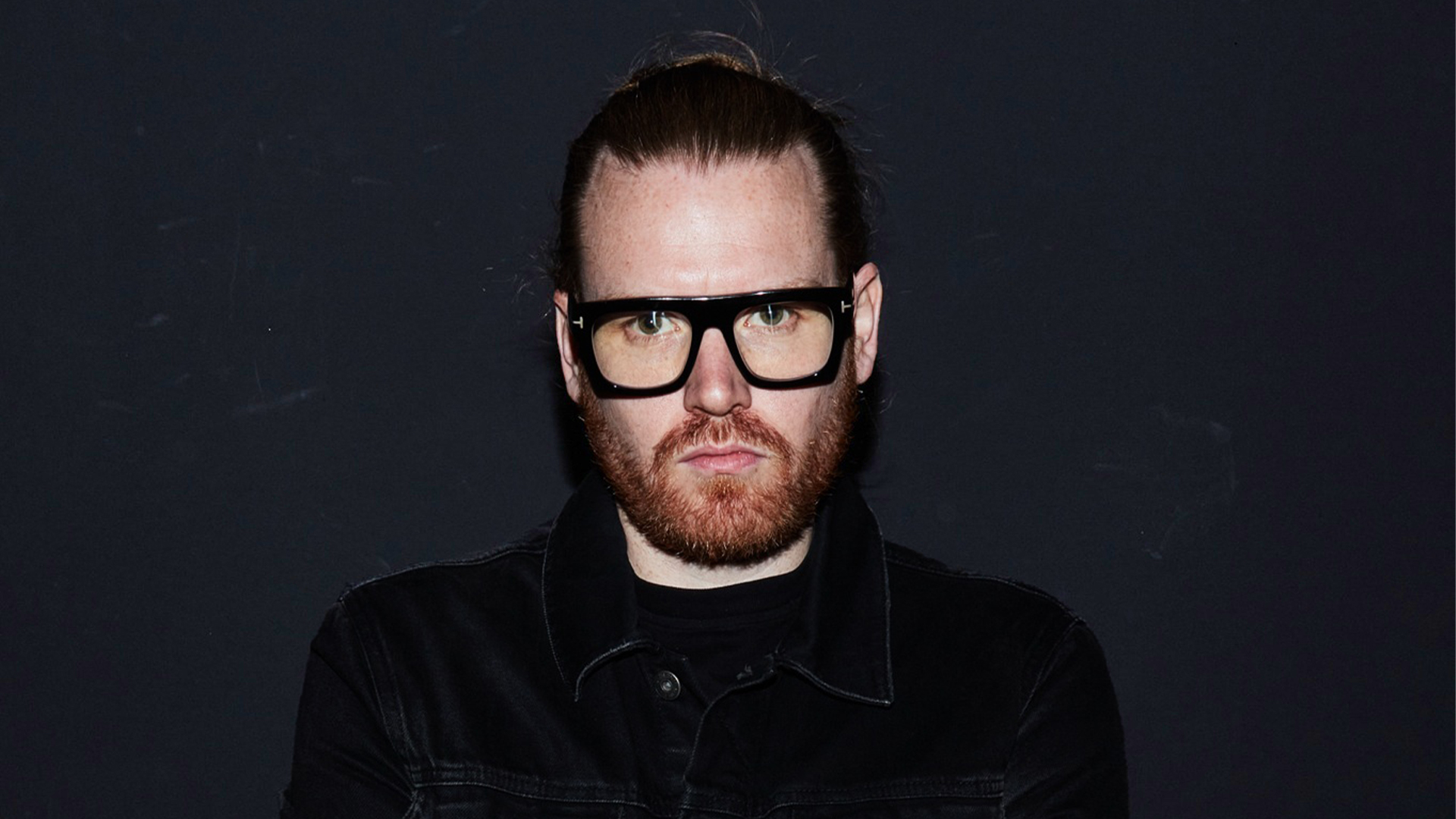Janus Friis
eBay may not be too happy about the performance of Skype, but its co-founders have moved on to promising new ventures. Janus Friis tells Oliver Lindberg why online TV service Joost is all set to revolutionise the way we watch television
Sign up to Creative Bloq's daily newsletter, which brings you the latest news and inspiration from the worlds of art, design and technology.
You are now subscribed
Your newsletter sign-up was successful
Want to add more newsletters?
“2008 will be the year that Joost really takes off,” says Janus Friis. It’s a bold statement, especially when there’s no shortage of competition. He admits that Joost is up against old-school television, as well as iTunes, filesharing, and essentially “just about any kind of video-based entertainment online and offline”. But if the successes of Kazaa and Skype are anything to go by – the other ventures that self-proclaimed disruptive entrepreneur Janus Friis has co-founded with long-term partner Niklas Zennstrm – Joost will have a winning streak.
Content producers are now ready to start embracing the internet, and to put their content online in a legitimate way
Friis believes that the time is finally right for online TV. “The internet is now ready in terms of bandwidth to create the right user experience,” he explains. “Importantly, content producers are now ready to start embracing the internet, and to put their content online in a legitimate way.”
Unsurprisingly, convincing the content providers posed one of the main challenges when the team started out as the Venice Project in January 2006. “We had to get them comfortable with the idea that they could put out long-form programming in an advertising-supported model on the internet. One of the things they asked was ‘Can we have pay-per-view?’ because that’s what they knew. We had to educate them on an advertising-supported model that’s been used on normal TV for many years, but on the net it was just a new thing to them. It took a lot of effort to make that happen.”
Right now, there’s still a lot of niche content on Joost – Australian Food TV, music channels like Linkin Park TV and Stadium Rockers, plus Wedding TV and Dude TV – but getting giants like Viacom, CBS, Warner Music and CNN onboard shows that it’s heading in the right direction. Joost offers content partners a secure, copyright-protected solution that even provides them with part of the ad revenue, so a lot of them jump at the chance. Add the two entrepreneurs’ impressive track records and you can’t fail. Or can you?
A new marketplace
eBay recently announced a write-down of the value of Skype by $900m, a move which implies that it was over-valued when the company acquired it. However, according to Janus Friis, this didn’t deter anybody from dealing with Joost: its revenue model is just so easy that you can’t help but see the money rolling in. “Every time someone watches content, there’s advertising associated with it, so the business model is linked in from the beginning. So far, our investors and potential partners are quite happy with the prospect.” Partnering marketers already include Coca-Cola, Hewlett-Packard, Intel and Nike, who must be ecstatic about the prospect of users having to sit through ads that are specifically targeted to them.

Joost already boasts a respectable 353 channels and 17,000 programmes, Friis says. “We’ve reached a critical mass, so we can start building the user experience more and more. Obviously, we’re a long way away from a scenario where you have all the best movies and all the best hit TV shows all on one service on the net. These things take time. We’re seeing a landscape of non-exclusive deals, and this is normal in a new marketplace. We’re in an early phase of internet-based TV. It’s like filesharing in 1999 or VoIP in 2002.”
Going live
When it comes to building the best possible user experience, there’s plenty lined up for 2008. One of the most significant additions to Joost’s features will be live TV. “Joost is going to start offering live streams,” the Danish entrepreneur reveals. “This could really be anything, but typically things that are well-suited for ‘live’, such as events, sports and news.” This move could convince more viewers to shift from their traditional TVs to the internet and give the online TV service an increased advertising revenue. Friis says the company is convinced that the advertising model is the right one, but it doesn’t rule out introducing a pay-per-view feature for special content in the future.
Sign up to Creative Bloq's daily newsletter, which brings you the latest news and inspiration from the worlds of art, design and technology.
Joost is also in talks with consumer electronics companies to embed the service in TV sets and other living-room/mobile gadgets. A browser-based version is in the pipeline, too. “We should be seamless between the web and being a client-based application,” Friis explains. “When you’re a P2P network, it’s great that people can install it and get notifications when there’s new content available. But it’s easier to access from a browser, so we want to be accessible from both worlds.”
While Janus Friis has certainly mastered the art of not revealing a great deal to journalists, we reckon it’s likely that there’s another reason for the decision to work on a browser-based version: streaming video on the web is set to significantly improve now that Adobe has incorporated the H.264 codec into Flash Player 9. Quality is about twice as good. So, showing full-screen videos on the net is now a whole lot cheaper and will attract even more players to the already crowded market that’s seeing NBC/News Corporation project Hulu, open source platform Miro, Babelgum and Zattoo courting for viewers.
Joost may be much more complex, but the experience that serial entrepreneurs Friis and Zennstrm have gathered at Kazaa and Skype certainly helps. They’ve worked together for more than 10 years, and specialise in creating applications that have global ambition. They’ve changed the telephone business, especially for long-distance calls, forever. In 2006, this scored them a place on Time Magazine’s list of the 100 most influential people in the world.
Free TV on your PC – if you can download an application that gives you access to a great content library when you want it, you will do it. It’s a no-brainer
“It’s very important you do something that is extremely simple and of benefit to people. Free TV on your PC – if you can download an application that gives you access to a great content library when you want it, you will do it. It’s a no-brainer.” And the ambitions are certainly on a grand scale: “We would be happy if, in a few years, millions and millions of people all over the world used Joost for a proportion of their entertainment needs. This is the first time in history that you’re able to create a global TV network. There’s no way you could do that before. You would have to have broadcasting capabilities and satellites all over the world. We see Joost as one of the first emerging global TV platforms, and it’s very much a platform, which is why we open up the API as much as we can.”
Public APIs
In fact, opening up the application is very important to the P2P revolutionaries. “It’s where we take a cue from what we did with Skype, although with Joost, we’re trying to do it a little bit earlier in the lifespan of the company,” Friis says. “The public APIs have been very successful for Skype, and encouraged a great ecosystem of companies and developers all over the world to create additional services for Skype – everything from USB phones to voicemail services and translation services. With Joost, we’ve already made the widget API available and we’re starting to see the first creations coming out from independent developers, such as a Facebook integration. This is an early phase, but we’ve been very aggressive in the way we want to open up our API and allow deep access to the services, so you can create really cool, new apps on top of Joost.”
Looking ahead then, open standards could give Joost the lead over its rivals. The screen will be totally customisable, so users who know a little bit of HTML are able to create any kind of widget. As a result, communities could be created around Joost that include competitions, ecommerce or forums. Users could end up spending more time on Joost and sticking to a specific stream, which would be more good news to advertisers. However, content owners will be able to ask for the widgets to be removed if they’re not happy with them on their programming. Then the persuasion process will have to start all over again for the Joost team, who see widgets as the future of television! All will be revealed in the New Year.

The Creative Bloq team is made up of a group of art and design enthusiasts, and has changed and evolved since Creative Bloq began back in 2012. The current website team consists of eight full-time members of staff: Editor Georgia Coggan, Deputy Editor Rosie Hilder, Ecommerce Editor Beren Neale, Senior News Editor Daniel Piper, Editor, Digital Art and 3D Ian Dean, Tech Reviews Editor Erlingur Einarsson, Ecommerce Writer Beth Nicholls and Staff Writer Natalie Fear, as well as a roster of freelancers from around the world. The ImagineFX magazine team also pitch in, ensuring that content from leading digital art publication ImagineFX is represented on Creative Bloq.
